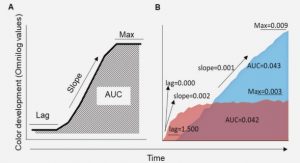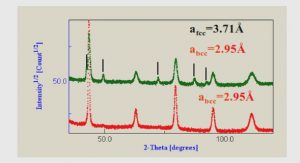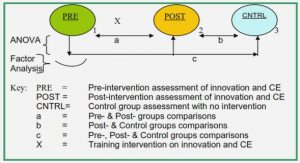Get Complete Project Material File(s) Now! »
CONCEPTUAL FRAMEWORK
A challenge that must be addressed when introducing a cross-cultural theme is how to achieve a balance between the introduction of knowledge that is ethno-specific and the introduction of themes or processes that are useful in achieving an understanding of people across cultures. Transcultural nursing is based on the premise that the peoples of each culture not only can know and define the ways in which they experience and perceive their nursing care world but also can relate these and perceptions to their general health beliefs and practices. Based upon this premise, nursing care is derived and developed from the cultural context in which it is to be provided.
Unfortunately several theories do not include transcultural nursing factors. According to Giger and Oavidhizar (1991 :3), theories of transcultural nursing with established approaches to patients/clients from varying cultures are relatively new. One of the most comprehensive theoretical tools used for nursing cultural assessment is the Outline of Cultural Material by Murdock et al. (1971 ); however, this tool was primarily developed for anthropologists who were concerned with ethnographic descriptions of cultural groups. While the tool is well developed and contains 88 major categories, it was not designed for nurse practitioners – thus it does not provide for a systemic use of the nursing process. Another theoretical model is found in Brownlee’s(1978) Community, Culture and Care: A Cross-Cultural Guide for Health Care Workers. Brownlee’s work is devoted to the process of practical assessment of a community, with specific attention given to health areas. It deals with three aspects of assessment: what to find out, why is it important, and how to do it. Brownlee’smodel, according to Giger and Davidhizar (1991 :4), is too comprehensive, too difficult, and too detailed for use with an individual patient.
While this framework was developed for use by health care practitioners, it is not – unlike Leininger’sCulture Care model – exclusively a nursing theoretical framework. In 1979, Gunter and Estes published an Interactive Model in which culture is included in all domains of nursing and aging. According to this model, gerontological nursing is a health service that integrates nursing and scientific knowledge about the aging process. From this knowledge basis, nursing care is provided to increase health behaviours; minimize the impact of losses and impairments due to age; provide support during distressing conditions, including death and dying; and to facilitate the treatment of diseases in the aged. This theoretical model was, however, specifically designed for the aged – it is age-bound.
In response to the apparent lack of nursing oriented transcultural models, Leininger developed the theory of Culture Care Diversity and Universality upon which this study is based. Currently, this Culture Care theory remains the only theory explicitly focused on human care and health and the major theory of transcultural nursing (Leininger, 1994:215). Leininger further states that:
The theory of Culture Care has been a valuable guide and interpretive model to guide nursing teachers when teaching the central focus of transcultural nursing. Research findings are still generated from this theory. The theory can be used worldwide and is not culture-bound. This means that the theory has linguistic referents and components that are found in all cultures.
The researcher agrees with the above statement – hence the theory has been adopted for this study. The explanation of this Culture Care theory is now in order.
According to this theory, nursing care can only take on meaning and become helpful to people if understood within a culture’svalues and life ways (Leininger, 1989:10). The purpose of this culture care theory was to obtain knowledge and insight in order to improve client care or initiate new type of nursing service.
Named as Culture Care Diversity and Universality, this theory seeks to provide cultural congruent care or culture specific care while at the same time look for cultural commonalities or universals (Leininger 1989, 1990a, b).
Commenting about the credibility of Leininger’sTranscultural Theory, Glittenberg (1978:vii) had this to say:
Leininger’s scholarly work is based upon nearly 20 years of systematic study and research based in nursing and anthropology to provide a sound conceptual framework for understanding culture diversity and humanistic nursing care.
In the above excerpt,Glittenberg reflects, among other things, Leininger’smany years of work in developing content, teaching, and carrying out research in transcultural nursing – each aspect of her work was based or centred around holistic and humanistic bases – the main theme of Culture care Diversity and Universality.
Culture Care Diversity and Universality theory is depicted in the Sunrise Model. The Sunrise Model, with its modes for nursing care decisions and actions, was used to discuss Professor Mashaba’stranscultural themes.
According to Leininger (1991 :40), it is within the Sunrise Model where culture congruent care is developed.
Using the world view and social system aspects, this model directs the researcher in studying the nature, meaning, and attributes of Mashaba’stranscultural care. According to Leininger ( 1991 :40), the cultural world view flows into knowledge [themes] about individuals, families, groups, communities, and institutions in diverse health care systems.
These, the researcher suggest, provide culturally specific n:ieanings and expressions in relati€m to nursing and health care.
CHAPTER ONE INTRODUCTION
Statement of the problem
Purpose of the study
Significance of the study
Study assumptions
Research questions
Organization of the study
CHAPTER TWO LITERATURE REVIEW AND DEFINITION OF TERMS
Introduction
The term « CULTURE »
The significance of culture to nursing
Social significance
Ethical significance
Ethnographic significance
The term « CULTURE CARE »
The term « TRANSCULTURAL NURSING »
The term « TRANSCULTURAL THEMES »
Traditional health care system
Professional health care system
Culture Care Diversity
Culture Care Universality
Thematic research: An Empirical and Conceptual Review
The Rationale for thematic research
Discovering Cultural Themes
Thematic Research Studies
Thematic research: Implications for the research design
Combining Ethnography and Biography
Ethnographic research approach
Defining Ethnography
Ethnographic Approach Applied to Nursing Practice
A Review of Different Types of Ethnographies
Biographic research approach
Defining Biography
Biography Approach Applied to Nursing Practice
A Review of Different Types of Biographies
Towards the Thematic framework
Conceptual framework 48
CHAPTER THREE METHODOLOGY
Introduction
Research approach and delimitation of research
Research design
Data collection
Fieldwork
Interviews
Data analysis
Ethical consideration
Validity and reliability
Consent and confidentiality
CHAPTER FOUR A SKETCH OF MASHABA’S LIFE HISTORY
Introduction
Formative years
The family background
The socio-economic status
The education background
The Christian-Zulu upbringing
Preliminary stages of the nursing career
Entrance into the nursing profession
Entrance into nursing education
The nursing (practice) experiences
Advanced stages of the nursing career
Becoming a matron
Preparation to start a new hospital
Taking charge of Ngwelezana hospital
Ngwelezana becomes an–independent hospital
The KwaZulu Government
The department of health
She is promoted to principal matron position
Becoming a University of Lu1u1a11~ t..:mployee
Starting a new University Department
The Department of Nursing Science
She is promoted to nursing professor position
The person in Mashaba
The physical features
The working Zulu woman
Combining Western life and African lives
The Nursing Scholar
Commitment to continuing education
Contacts with other scholars
Learning from the role models
The philosophy of life through her activities
CHAPTER FIVE THEMES ON TRADITIONAL HEAL TH CARE SYSTEM
Introduction
Zulus in Zululand
Traditional (Zulu) Health Care System
Mashaba: A Zulu nurse
Themes on traditional health care
Recognition of Traditional (Zulu) culture
Recognition of Traditional (Zulu) language
Recognition of native nurses’ history
Thematic illustrations of cultural differences
Characteristics of a good transcultural nurse: The influences of Zulu (African) culture.
Incorporating the Ubuntu element
Native context for native students
Understanding of culture bound syndromes
CHAPTER SIX THEMES ON PROFESSIONAL HEAL TH CARE SYSTEM
Introduction
Professional health care system
Mashaba’s recognition of the western influence
Positive attitudes towards Western health care
Christian (western) doctrine
Mashaba’s reactions against westernization
Characteristics of a good transcultural nurse: the influence of Western culture.
Academic and professional freedom
Understanding of the concept « caring »
Cultural empathy
CHAPTER SEVEN GENERAL CONCLUSION
Introduction
Significance of Mashaba’s themes: Revisiting the
Study Questions and Study Assumptions
Responses to Study Questions
Revisiting the Assumptions for the Study
Recommendations for further studies
Concluding remarks
Sources
Appendix
GET THE COMPLETE PROJECT
TOWARDS CULTURE CARE NURSING EDUCATION: A STUDY OF T.G. MASHABA’STRANSCULTURAL THEMES






